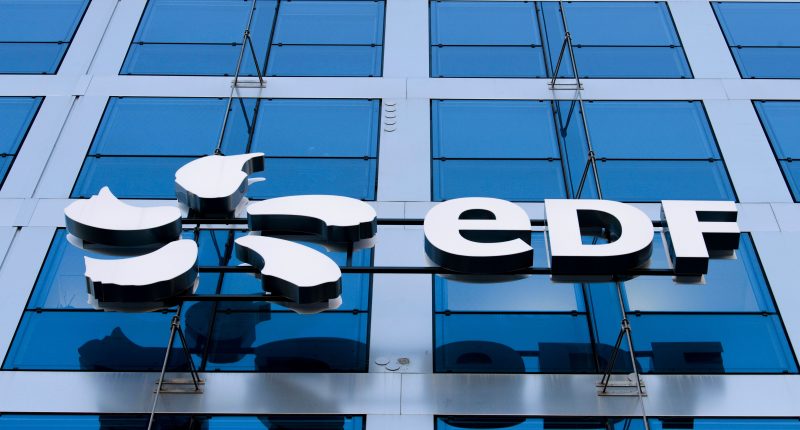A MAJOR energy supplier has launched a fixed energy deal that’s £347 less than Ofgem’s current price cap.
EDF Energy is offering new and existing customers the chance to fix their energy bills at a cheaper rate offered to those on the standard variable tariff (SVT).
EDF’s new “EDF Essentials 1Yr Mar25V6” tariff will allow customers to fix their energy prices at an average cost of £1,581.
For the average household, this will be £347 cheaper than sticking to the SVT which is pegged to Ofgem’s price cap.
This has capped typical gas and electricity bills at £1,928 a year since January 1.
The cap will then fall from the current rate of £1,928 to £1,690 a year on April 1.
Read more in money
However, EDF Energy’s latest fix tariff will still be £109 a year cheaper than the next price cap.
Customers wishing to sign up for EDF’s new fixed deal will pay the following rates for a period of one year:
- 5.62p per kilowatt hour (p/kWh) for gas
- 23.74p/kWh for electricity
- A standing charge of 32.04p per day for gas
- A standing charge of 40.78p per day for electricity
The deal is available to new customers currently with any supplier via Uswitch.com.
Most read in Money
However, existing EDF customers can access the same fixed deal directly through the supplier.
Will Owen, energy expert at Uswitch.com, said: “It’s great to see some competition in the market again, especially from a well-known and highly-rated supplier such as EDF.
“Customers have been under the cosh from sky-high prices for years, so it’s a big step to see tariffs priced lower than the upcoming cap, and the cheapest we’ve seen since late 2021.
“At £1,581 for the average household, this should be worth considering for those wanting to take advantage of falling rates and lock in price certainty for 12 months.
“If you decide to stay put on a standard variable tariff, it’s worth noting you will see your energy costs change every three months in line with the price cap.
“We don’t expect this deal to be available for long, and EDF reserves the right to remove the deal at any time. We’re hopeful this will encourage more suppliers to price competitively to finally give customers choice – and financial relief – on their energy bills.”
Should I take on a fixed energy deal now?
Customers who lock into a fixed energy deal are charged the same gas and electricity rates during the term of the contract.
This means that prices will stay the same throughout and customers won’t face large bill hikes if Ofgem was to increase the price cap.
However, if prices fall in the future, you could end up paying more, so it’s important to assess the real value of these offers.
From July 1, Ofgem will introduce the following new price cap rates for those on the SVT:
- 6.04p per kilowatt hour (p/kWh) for gas
- 24.50p/kWh for electricity
- A standing charge of 31.43p per day for gas
- A standing charge of 60.10p per day for electricity
For a typical household that uses an average of 11,500kWh of gas and 2,700kWh of electricity every year, these rates will cap bills at roughly £1,690.
But as this is only an estimate for a typical household – so if you use more energy you’ll pay more.
If you’re offered a fix that’s lower than April’s price cap, it’s always worth considering.
However, before agreeing to a new fix it’s important to understand that Ofgem’s energy price cap will be reviewed again later this year.
The regulator reviews the cap on unit rates for those on the default tariff every three months.
This means that annual energy bills may drop further into 2024 when the next price cap comes into force in July.
What are the alternatives?
Customers unwilling to commit to long-term fixed energy deals may want to consider variable tariffs.
Kara Gammell, personal finance expert at comparison site Money Supermarket Group, says: “These will almost always be at or below the price cap.”
For example, E.ON Next’s Pledge variable tariff offers a fixed discount of around three per cent on the price cap rates for 12 months.
It will save the average household around £50 a year but comes with a £50 exit fee if you switch before the year ends.
The deal is available to both new and existing customers.
For a bigger reward but at a higher risk, Octopus Energy offers two variable tariffs which track wholesale gas and electricity costs.
Customers on the Octopus Tracker see their prices change daily, but unit rates have remained consistently lower than the price cap in recent months.
For example, in the last 30 days, people living in Southern England on the Octopus Tracker paid a maximum of 19.1p per kWh for electricity and 4.29p per kWh of gas, which is 9.52p and 3.13p cheaper than the price cap per fuel.
READ MORE SUN STORIES
The Agile Octopus tariff works similarly to the Octopus Tracker, the main difference is the former’s prices change every half hour.
Remember that those wishing to switch to any of these tracker tariffs must have a smart meter.
What energy bill help is available?
THERE’S a number of different ways to get help paying your energy bills if you’re struggling to get by.
If you fall into debt, you can always approach your supplier to see if they can put you on a repayment plan before putting you on a prepayment meter.
This involves paying off what you owe in instalments over a set period.
If your supplier offers you a repayment plan you don’t think you can afford, speak to them again to see if you can negotiate a better deal.
Several energy firms have grant schemes available to customers struggling to cover their bills.
But eligibility criteria varies depending on the supplier and the amount you can get depends on your financial circumstances.
For example, British Gas or Scottish Gas customers struggling to pay their energy bills can get grants worth up to £1,500.
British Gas also offers help via its British Gas Energy Trust and Individuals Family Fund.
You don’t need to be a British Gas customer to apply for the second fund.
EDF, E.ON, Octopus Energy and Scottish Power all offer grants to struggling customers too.
Thousands of vulnerable households are missing out on extra help and protections by not signing up to the Priority Services Register (PSR).
The service helps support vulnerable households, such as those who are elderly or ill, and some of the perks include being given advance warning of blackouts, free gas safety checks and extra support if you’re struggling.
Get in touch with your energy firm to see if you can apply.










